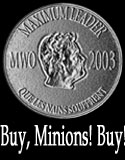Professor Weissman at Columbia lectures on the fate of farm subsidies in Saudi Arabia:
He starts with a good pedagogical activity: make the students consultants:
As an economic consultant to Nigeria, it is your job to advise the new
democratically elected, well intentioned, transparent, and relatively
corrupt-free Nigerian government about how best to use the proceeds from its oil
export industry. Nigeria’s goal is to use its oil revenues to promote the
development of another export sector in preparation for when its oil reserves
are exhausted.
Having laid the groundwork and focused students on their task, he then provides background material so they can begin to consider their options:
In preparing your report, you’ve come across two similar situations involving
Kuwait and Saudi Arabia. Like Nigeria, Kuwait and Saudi Arabia are rich in oil.
Unlike Nigeria, however, these countries have been at least partially successful
in generating wealth with their oil reserves over time. For example, compared to
Nigeria’s per capita GDP of $240, Saudi Arabia has a per capita GDP of $7240.
What have Kuwait and Saudi Arabia done with its oil revenues? Can and should
Nigeria attempt to follow either of these examples?
This is an economics class, but many history teachers would do well to follow his model. The point, he says, of examining past experience is to make educated decisions today. History teachers too often forget why history is important.
Let’s first look at Saudi Arabia. Rising oil prices in the seventies and early
eighties left Saudi Arabia with vast reserves of cash. At this time, the
government of Saudi Arabia was greatly concerned about its dependency on the
West for food - Saudi Arabia imports most of its food because deserts are not
conducive for growing wheat and other food crops. This confluence of oil wealth
and national security concerns led Saudi Arabia to implement a wide array of
farming subsidies to Saudis willing to attempt to farm in the desert. The
subsidies ranged from free water for irrigation and free land to cheap loans for
farming equipment. In addition, the government provided farmers with price
supports for wheat and dairy products - promising to pay farmers as much as five
times the world market price per bushel because of the high costs involved in
growing wheat in the desert. In other words, Saudi Arabia regularly paid its
farmers as much as (let’s say) $40 for a bushel of wheat that the government
would then sell on the world market $8, with the net result being a government
loss of $32 per bushel above the cost of the already generous farming subsidies.
The U.S. subsidies are not as extreme but they have the same affect: artificially directing farming investment and development into areas that will not be sustainable sans the government teat. With feedlot margins of a handful of dollars per animal, dropping corn subsidies would put the big feedlots out of business. But now that the meat industry has concentrated and moved towards industrialization, removing that subsidy would cause a cascading affect throughout the food industry and disproportianately impact poor families who spend a great portion of their family budget on food. The decision to move to industrial farming was abysmally stupid.
Sorry. I’ll climb down off the soapbox and return to professor Weissman.
What was the result? Saudi Arabians took advantage of the subsidy program by
starting farms (with the free land and water) and then hiring foreigners
(Jordanians, Palestinians, and others) to manage the farms while the Saudi
owners remained comfortably in the cities. From the perspective of achieving
autonomy from Western wheat the program was at least a short-term success. By
the mid-eighties, Saudi Arabia was a net exporter of wheat. In 1992, Saudi
Arabia was the 6th largest exporter of wheat in the world. Currently, Saudi
Arabia is the home of the largest dairy farm as well, producing as much as
390,000 liters of milk a day.
Mmm. You know how your Minister of Agriculture LOVES concentrated dairy operations! The facility currently milks 29 THOUSAND cows.
By 1995 the Saudi Arabian government finally recognized that the large-scale
agricultural sector, made possible by subsidies and incentive programs, was
environmentally and economically unsustainable.
Ya think?
Gee, how is the grain mono-culture confinement feeding working out here in America?
Compounding the problem was the decline in oil revenues, which led the Saudi
government to cut back the popular incentive program.
Ah, you see where this is heading, don’t you. Saudi official: To reduce our dependence on foreign food, we will spend our oil revenues to grow food inefficiently in the desert. So when the oil runs out we will have… inefficient farms in the desert!
What can Nigeria learn from Saudi Arabia’s experience? Well, the first question
is whether or not Saudi Arabia realized its objective of agricultural
self-sufficiency. As the sixth largest wheat producer in the world, it would
appear that the answer is yes. However, this self-sufficiency has proven to be
only as durable as their supporting oil revenues; a decline in oil revenues
resulting from either low oil prices or declining production undermines the
Saudi self-sufficiency achievement. So any achievement of self-sufficiency was
illusory.4
To see thi�, let’s advance the calendar fifty years and imagine what Saudi
Arabia might look like once its oil reserves are exhausted. Without the oil
revenues to finance the agricultural subsidies, the Saudi wheat and dairy
industries will collapse. This will leave Saudi Arabia with nothing to show for
its decades of oil production, and Saudi Arabia will find itself without
dependent on the West for food and with nothing to offer the West either
politically or economically in return. What about the Saudi know-how and
expertise in cultivating the desert? As long as wheat can be grown more cheaply
in sufficient quantities around the world in plains and flatlands such as Russia
and the American Midwest, Saudi expertise in desert farming will remain
non-marketable. Of course, should humanity ever decide to colonize Mars Saudi
ingenuity and know-how will prove invaluable in irrigating and establishing
farms on the red planet. Considering some possible alternative uses of the oil
revenues only strengthens the conclusion that Saudi Arabia wasted billions of
dollars of oil revenues chasing shadows.
What could Saudi Arabia have done
differently? Well, Saudi Arabia might have followed the example of Kuwait. In
the 70s and 80s Kuwait invested the bulk of its proceeds from oil exports
abroad. The expectation was that the growth of its foreign investment portfolios
would provide Kuwait with a steady stream of income in the future when its oil
reserves are exhausted. Kuwait’s plan went awry after the Gulf War - Kuwait was
forced to sell a substantial portion of its foreign holdings in order to pay for
reconstruction. While Kuwait failed to achieve its objectives, imagine what
Kuwait’s position would have been after the Gulf War had the oil revenues been
frittered away as farming subsidies. Consequently, at least in comparison with
the Saudi self-sufficiency plan, Kuwait’s use of its oil revenues must be scored
a success.
Note that our evaluation of Kuwait’s plan is not contingent on
the fact that the funds were invested internationally rather than domestically.
True, Kuwait’s disinclination to invest domestically in an alternative sector
was fortunate in hindsight - had Kuwait invested locally the proceeds would have
been lost when the war devastated this industry along with the rest of Kuwait.
Thus, had Kuwait developed a domestic sector other than oil, the devastation
would have left Kuwait without the resources necessary to rebuild without
resorting to loans. However, other than the advantage of diversification (by
holding wealth domestically in the form of oil and abroad in the form of foreign
assets), there is no advantage in pursuing foreign over domestic investment
opportunities. Theoretically, absent the Gulf War, had the oil revenues been
used to nurture a domestic growth sector that could have developed a comparative
advantage this would have secured Kuwait’s financial future as well as foreign
investment. So why did Kuwait choose to invest the funds abroad rather than
domestically? This is a good question and is worthy of discussion, but as
investigating this question would take us pretty far off topic, we’re going to
postpone examining this issue for now.
I had no considered how Kuwait’s economic policy had laid up a store of resources for the post-invasion reconstruction. Fascinating.
Shut up! I’m not a geek!
So what can Nigeria learn from the examples of Kuwait and Saudi Arabia?
First, the Saudi national security objective was ill considered because farming
in the desert can never become sustainable and its ability to perpetually
subsidize agriculture is limited. Furthermore, the opportunity cost of diverting
resources to agriculture was a reduction in investment in possibly profitable
alternative sectors. National security can be a legitimate justification for
trade barriers in certain circumstances, however. Consider the ban on trading
weapons grade plutonium. The Saudi case is a particularly good example of an
ill-conceived national security motivated anti-trade policy because of the
�ong-term non-viability of the program.
The Saudi case also yields some
insights regarding the limitations of the infant industry argument for trade
barriers. Suppose that the Saudi government wanted to use its oil revenues to
help nurture an infant industry. Would agriculture be a wise recipient of the
infant industry motivated trade protection? Should Nigeria emulate the Saudi
policy? Even to the extent to which the infant industry argument is credible
(and we haven’t really delved into the robustness of the infant industry
argument yet), Nigeria (unlike Saudi Arabia) should choose to back a potentially
profitable industry. While, as we’ve seen, comparative advantages can be gained
or lost over time, some comparative advantages are natural or inherent - Saudi
Arabia will never become the breadbasket of the world. Resources devoted to
developing a comparative advantage in an infeasible sector are inefficiently
used. Consider the Saudi case. Fewer resources could have created a viable
breadbasket elsewhere (such as Saudi investment in Egypt), leaving the remainder
of the resources over for another purpose.


